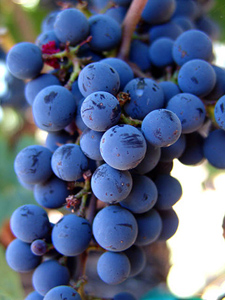Wine Varieties, A Lesson On Grapenomics
An Introduction To Wine Varieties
So far we’ve discovered how your senses understand wine, looked at wine tasting for beginners, discussed wine faults and off-odors in wine; we’ve done everything but talk about wine itself. So let’s talk about wine. Specifically, let’s talk about wine grapes, wine varieties and wine varietals. Last time, I mentioned that there is a big difference not only between each grape variety, but differences within each variety. And understanding these differences is key to learning about wine and knowing what to expect from a bottle when purchasing wine.
Last time, I mentioned that there is a big difference not only between each grape variety, but differences within each variety. And understanding these differences is key to learning about wine and knowing what to expect from a bottle when purchasing wine.
Now it’s crazy to think about the ten thousand or so grapes out there classified as Vitis vinifera (that’s the technical word for wine grape). That’s a lot to chew on for a beginner and I wouldn’t be able to name a fraction of those wine grapes anyway–not because I don’t care enough to know them, which I don’t — but that the actual number of wine grapes used in commercial winemaking is only about one thousand. And then only a handful of those grape varieties are used in the production of “fine wine”. There’s some trickle-down grapenomics for you.
Naturally, when learning about wine you can assume that each wine grape has its own unique characteristics to distinguish it from other varieties, like color, skin thickness, acidity, flavor…. the list goes on. Some grape varieties are as old as the dirt they’re grown in, while others are relatively new to the scene, being mutations of their venerable predecessors or having been genetically created.
Knowing the differences between grape varieties, what each can impart on a wine and knowing which wine grape grows where can help a wine beginner determine what to expect from a wine. Yet while we can predict what that bottle of Cabernet Sauvignon will be like, for example, it’s definitely not a science and each bottle of Cab will vary from producer to producer, region to regiion.
What I’m going to be explaining here, what you’re interested in is the vinous (wine) personalities of some of the more mainstream red wine varieties and white wine varieties, the ones used in making fine wine. I’m not going to go too in-depth about the wine information concerning the climate and geography of the wine growing areas, however, I will go over main points. For the most part, I will simply focus on the wine grape and the wine varietal that it makes.
Each wine will be profiled in a unique way, but will include the following wine basics:
- Structure: When I say structure I’m referring to taste or mouthfeel. While many wines have similar characteristics — fruit flavors, acidity, tannins if it’s red — how these characteristics mesh determines their structure.
- Aroma: A wine’s aroma, or a its nose is simply the smell of a wine. Floral, citrus, woodsy, buttery, oaky, vanilla, are all aromas of wines. A wine’s aroma is also known as the “wine bouquet”.
- Grape growing issues: This includes length of harvest, pruning issues, acidification, technical jargon…
- Growing areas: Terroir. This is everything concerning the development of the grape on the vine.
- Winemaking issues: Issues that come up in the production of the wine.
- Wine styles: This includes grapes used in fortified wines, sparkling wines and Rosés.
One last thing before we go into each wine grape variety. About the terms “variety” and “varietal”. You’ve seen me mention wine variety in abundance; this post is filled with the term. When I’m talking about wine variety, I’m talking about a particular wine grape. But when I mention varietal, what I’m referring to is the wine grape named on a particular bottle of wine, for instance, Merlot. A bottle marked Merlot on the label is made of the wine grape variety Merlot. The bottle of Merlot itself is the wine varietal. Just some more technical wine jargon for you to choke down…
Now, on to our first wine grape: the most popular white wine: Chardonnay.
No related articles.
 Subscribe
Subscribe


 Posted in
Posted in 